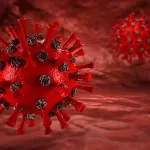
CHRM1 Protein Unveiled as a Therapeutic Target in Advanced Prostate Cancer
January 29, 2024New research has pinpointed the receptor protein CHRM1 as a pivotal factor driving docetaxel-resistant prostate cancer. A team of scientists at Washington State University led the study, demonstrating that inhibiting CHRM1 restored docetaxel’s efficacy in killing cells and halting tumor growth. The findings suggest that blocking CHRM1 could potentially overcome resistance to docetaxel, a primary chemotherapy drug for advanced prostate cancer. The study is published in Cell Reports Medicine.
Co-senior author Boyang (Jason) Wu from the WSU College of Pharmacy and Pharmaceutical Sciences explained that while CHRM1 has been known to play a role in promoting prostate cancer growth and progression, its specific role, function, and mechanism were not well understood. The study highlights CHRM1 as a potential therapeutic target in chemotherapy-resistant prostate cancer, emphasizing its relevance in finding alternative treatment options for patients facing docetaxel resistance.
In their study, the team discovered that both genetic and pharmacological inactivation of CHRM1 reinstated docetaxel efficacy in resistant cells. The researchers used dicyclomine, a drug that selectively inhibits CHRM1 activity and is already on the market as a generic drug for treating irritable bowel syndrome, to pharmacologically inhibit CHRM1.
“We observed that inactivating CHRM1 could serve as a target for overcoming docetaxel resistance,” says Wu. Silencing CHRM1 expression with dicyclomine restored docetaxel sensitivity in resistant cells. These findings were consistent in cell line models and various animal models, including a patient-derived xenograft model using docetaxel-resistant patient tissue samples.
The team focused on CHRM1 after genomic profiling and bioinformatics studies indicated that the acetylcholine signaling pathway is enriched in docetaxel-resistant prostate cancer cells compared to sensitive controls.
“We speculated that acetylcholine signaling plays a role in docetaxel resistance,” adds Wu. “Further studies revealed elevated acetylcholine secretion as well as CHRM1 in the cells, prompting us to initiate this study.”
Based on these findings, the team plans to explore two future directions. One is to investigate whether this combination can be applied to other types of cancers, such as breast and lung, where docetaxel is routinely used. Another avenue involves testing the combination treatment of dicyclomine with other taxol-based chemotherapy drugs.
In addition to testing resistant cancer cell lines, the research team also examined cells that still responded to docetaxel treatment. Surprisingly, they found that using dicyclomine to block CHRM1 in these cells enhanced the efficiency of docetaxel in killing them. Wu highlighted that this implies prostate cancer patients might potentially benefit from a combination treatment strategy even before docetaxel resistance develops.
“This suggests that the lowest effective dose of docetaxel may be lower when the drug is combined with dicyclomine, compared to when docetaxel is used alone,” Wu explained. “Being able to use a lower dose could help reduce unwanted side effects and make treatment more manageable for patients.”
















